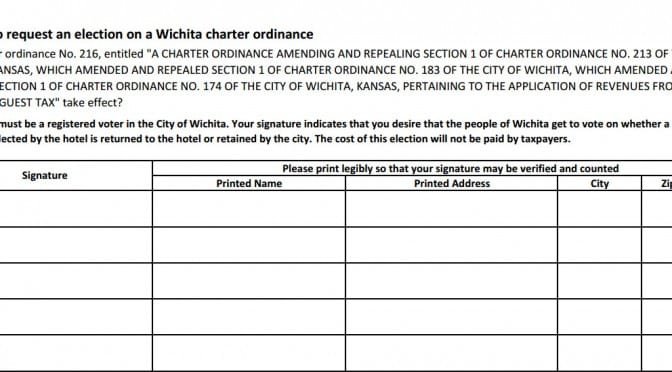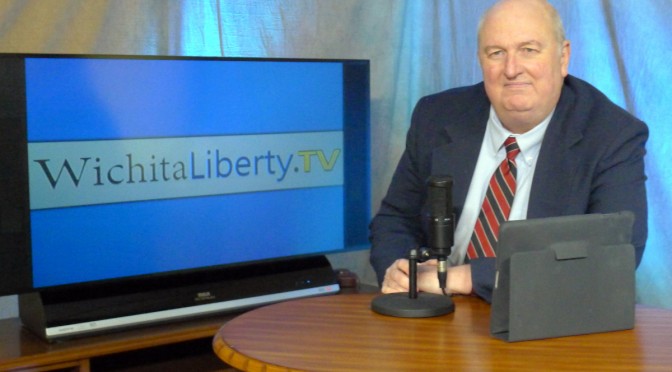Tag: Initiative and referendum
-

Kansas and Colorado, compared
News that a Wichita-based company is moving to Colorado sparked a round of Kansas-bashing, most not based on facts.
-

WichitaLiberty.TV: Initiative and referendum
What recourse do citizens have when elected officials are not responsive? Initiative and referendum are two possibilities.
-

WichitaLiberty.TV: Kansas revenue and spending, initiative and referendum, and rebuliding liberty
The Kansas Legislature appears ready to raise taxes instead of reforming spending. Wichita voters have used initiative and referendum, but voters can’t use it at the state level. A look at a new book “By the People: Rebuilding Liberty Without Permission.”
-

Wichita has examples of initiative and referendum
Citizens in Wichita have been busy exercising their rights of initiative and referendum at the municipal level. The Kansas Legislature should grant the same rights to citizens at the state level.
-

WichitaLiberty.TV: Term limits, initiative, and referendum
A candidate challenging a long-time incumbent for United States Senator from Kansas provides the opportunity to explore the need for term limits, and the related concepts of initiative and referendum.
-

WichitaLiberty.TV February 16, 2014
The controversy surrounding the residence of a long-time senator from Kansas raises issues of term limits and the ability of citizens to exercise the power of initiative and referendum. Then, the seen and the unseen applied to economic development in Wichita, and why do we rely on certain experts.
-
Stopping crony capitalism
Voters in Wichita, Kansas, went to the polls, Tuesday, to smash a measure that would have forked over $2.25 million in tax rebates to a downtown hotel project. Those supporting the giveaway spent $300,000 to promote the deal, while opponents ponied up a scant $30,000 against it. The vote nevertheless strongly weighed against the big…
-
Kansas and Wichita quick takes: Monday November 29, 2010
Today: Earmarks, Economic development, Free markets, Health care, Wichita city council, Wichita Pachyderm Club, Subsidy, Downtown Wichita revitalization, Initiative and referendum.
-
Kansas and Wichita quick takes: Monday October 11, 2010
Today: Education, Initiative and referendum, Jerry Moran, Kansas fourth district, Kris Kobach, Mark Parkinson, Raj Goyle, Regulation, Rhonda Holman, Sam Brownback, School choice, and Wichita Pachyderm Club.
-
Kansas needs citizen-powered democracy
Following is an op-ed by Paul Jacob that recently appeared in the Wichita Eagle, although this is the version he sent to me. Jacob is president of Citizens in Charge Foundation, a national organization that promotes the rights of initiative and referendum. The citizens of Kansas enjoy neither of these.
-
Kansas scores poorly in initiative and referendum rights
Citizens in Charge Foundation — a transpartisan national voter rights group focused on the ballot initiative and referendum process — has released its 2010 Report Card on Statewide Voter Initiative Rights. Those familiar with Kansas will not be surprised to learn that our state scores poorly, as do many other states.
-
Oklahoma tinkers with petition law; Kansas has none
Sometimes we in Kansas like to poke fun at our neighbors to the south in Oklahoma. I’m sure they do the same to us. But one way in which Oklahoma has Kansas beat is in Oklahoma citizens’ ability to petition their government through the process of initiative and referendum. It’s not possible to do this…